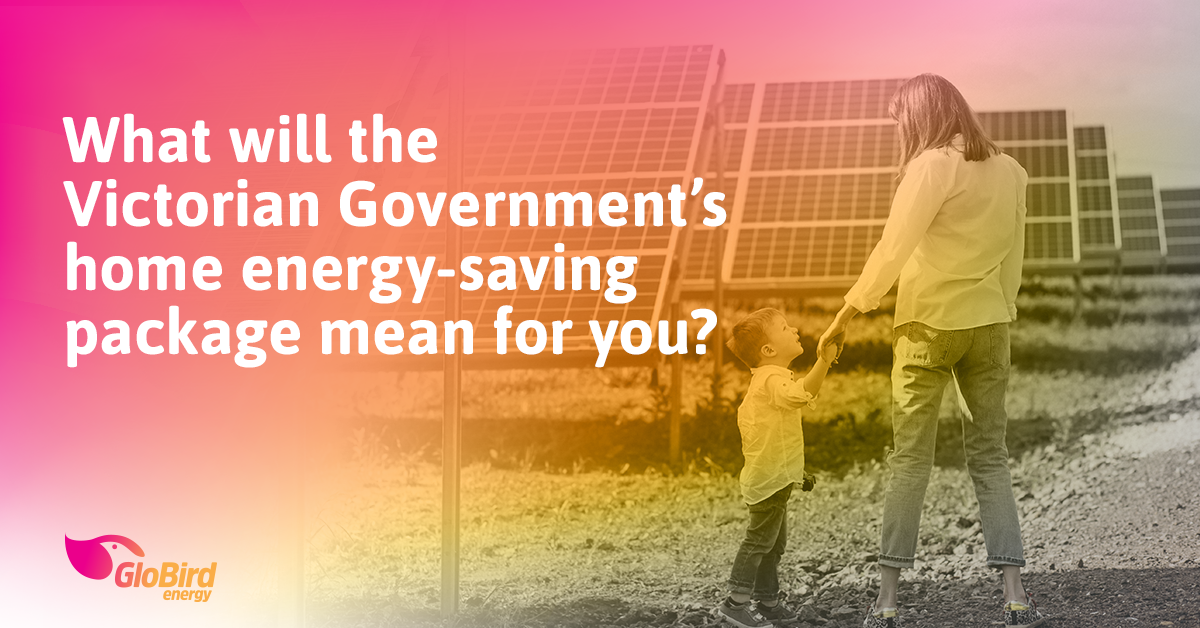Energy efficiency is a key pillar of an $800 million commitment by the Victorian Government in the 2020/21 State Budget.
While the Government’s announcement was titled “Helping Victorians Pay Their Power Bills”, the home energy-saving package is far more extensive than that.
There is a real focus on helping low-income earners, a clear push to encourage an even greater take-up of solar energy systems – by both household and businesses – and an underlying message that older appliances need to be replaced by more energy-efficient ones.
Of course, being a Government announcement there was also the mandatory reference to “creating thousands of jobs, while also reducing greenhouse gas emissions”.
But we’re really interested in the energy-efficiency initiatives.
Paying the bills
The package offers a one-off $250 “direct bill relief” payment towards energy costs for eligible concession card holders, including anyone receiving JobSeeker, youth allowance, or pension payments.
Reducing bills
In what some consider a long-overdue move, the Budget includes some significant assistance for low-income earners, those in public housing, and renters to improve their circumstances.
As we’ve covered previously, the best ways to reduce your energy bills include more efficient appliances and better insulation, but we know that’s a lot easier said than done for those who don’t own their home and/or don’t have any money to do so.
To address that, the energy-efficiency package includes:
- Rebates for 250,000 low-income households to replace old wood, electric, and gas heaters with energy-efficient split systems ($335 million).
- An allocation to seal windows and doors and upgrade heating, cooling, and hot water in 35,000 social-housing properties ($112 million).
- New minimum energy-efficiency standards for rental homes, which the government estimates will help tenants in about 320,000 poor-quality properties.
The Government says the first of these initiatives will save those 250,000 households between $300 to $900 a year on their energy bills.
Boosting solar
We know that the penetration of rooftop solar in Australia is the highest in the world, and all indications are that more Victorians are considering joining the trend.
To encourage that, the package includes:
- An additional 42,000 solar rebates for households (worth $1850 each), taking the total number of rebates on offer through the Solar Homes program over two years to 140,000.
- Solar rebates for 15,000 small businesses over three years, covering up to half the cost of the system installed.
- Rebates for solar batteries (worth up to $4147 each) now open to all Victorians, with an additional 17,500 rebates provided to households over the next three years.
Upgrading appliances
There’s also an extra $14 million allocated to expand the existing Victorian Energy Upgrades Program which provides rebates to trade up to smart appliances.
Here’s some information on the Victorian Government website about upgrades.
And a bit more …
There were some announcements and initiatives that weren’t specifically part of the home energy-saving package:
- A stronger platform for the long-term strategy of eventually having a minimum 7-star efficiency standard for all new homes.
- An allocation of $25 million toward the rollout of a fast-charging network for electric vehicles on major highways and at key tourist destinations in the state.
- $21 million for local clean energy projects such as microgrids, stand-alone power systems, and community batteries.
- $21 million to assist community groups with the installation of renewable energy systems, storage, and energy efficiency improvements for community buildings, and support the ResourceSmart Schools program.
- $682 million towards developing Renewable Energy Zones (REZs) to better coordinate investment in energy generation, storage, and transmission.
What we think
The Government is sending some strong messages about where they hope the future will lead.
If more Victorians are able to upgrade their old, inefficient appliances and generally improve the energy-efficiency of their homes, their energy bills will be cheaper.
We understand that a good proportion of what was contained in this year’s Budget was a response to a very challenging year for all of us, we don’t want to see things given a ‘short-term fix’ and then forgotten next year or the year after.
We are hopeful this focus on helping consumers find better ways to lower and manage their usage goes further and is sustained. Not only will consumers see cheaper power bills, but it will benefit our environment too.
Canadian Prime Minister Justin Trudeau said: “Climate change will test our intelligence, our compassion and our will. But we are equal to that challenge.”
Each year we are seeing leaps forward in innovation and energy efficiency. It looks like science, governments, consumers, and the private sector are taking up this challenge, and initiatives like this make it that little bit easier for the average person to do their bit.
If you need inspiration on tips and tricks on how you can lower your energy usage, check out our Energy Saving Tips page, or check online to research the latest state based incentives, these change from time to time so its worth keeping up with the latest opportunities.
